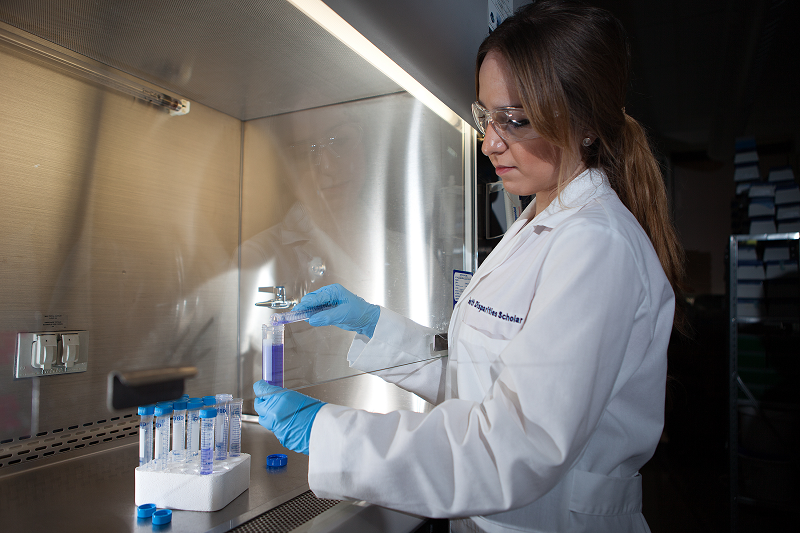Document Type
Article
Publication Date
4-12-2019
Abstract
The chemokine (C-C motif) chemokine ligand 18 (CCL18) is a structural homolog of CCL3 primarily produced by monocyte-derived cells with an M2 phenotype. Elevated levels of CCL18 have been observed in several diseases associated with malignancies and chronic inflammation. The role of CCL18 in Human Immunodeficiency Virus (HIV-1) infection remains unknown. We analyzed expression levels of T helper cell-mediated (TH2) chemokines CCL18, CCL17, and CCL22 by ELISA in plasma collected from HIV-1-infected and healthy donors. In HIV-1-infected individuals, plasma viral loads were monitored by NucliSense HIV-1 QT assay and T cell counts and expression of the activation marker CD38 were determined by flow cytometry. Our data showed a significant increase in plasma levels of CCL18 in HIV-1-infected individuals compared to uninfected controls (p < 0.001) and a significant correlation between CCL18 levels and viral load in untreated patients. No significant difference of CCL18 levels was detected among the HIV-1-infected patients treated with combined antiretroviral therapy (cART) and HIV-1-untreated patients.CCL18 values are negatively correlated with CD4+CD38+ cell numbers and total CD4+ T cell counts in patients with a suppressed viral load. Notably, plasma levels of the TH2 chemokines CCL17 and CCL22 are also elevated during HIV-1 infection. However, no correlation of CCL17 and CCL22 production with CD4+ T cell counts was detected. Presented data shows that the chemokines, CCL17, CCL18, and CCL22 are increased during HIV-1 infection. However, only increased levels of CCL18, a marker of M2 macrophages, correlate with low CD4+ T cell counts in patients with suppressed viral load, raising the possibility that CCL18 and/or CCL18-producing cells may interfere with their reconstitution in HIV-1-infected patients on cART.
Recommended Citation
Malhotra, P., Haslett, P., Sherry, B., Shepp, D. H., Barber, P., Abshier, J., Roy, U., & Schmidtmayerova, H. (2019). Increased Plasma Levels of the TH2 chemokine CCL18 associated with low CD4+ T cell counts in HIV-1-infected Patients with a Suppressed Viral Load. Scientific Reports, 9(1), 5963. https://doi.org/10.1038/s41598-019-41588-1
Creative Commons License

This work is licensed under a Creative Commons Attribution 4.0 International License.
Publication Title
Scientific Reports
DOI
10.1038/s41598-019-41588-1



Comments
© The Author(s) 2019